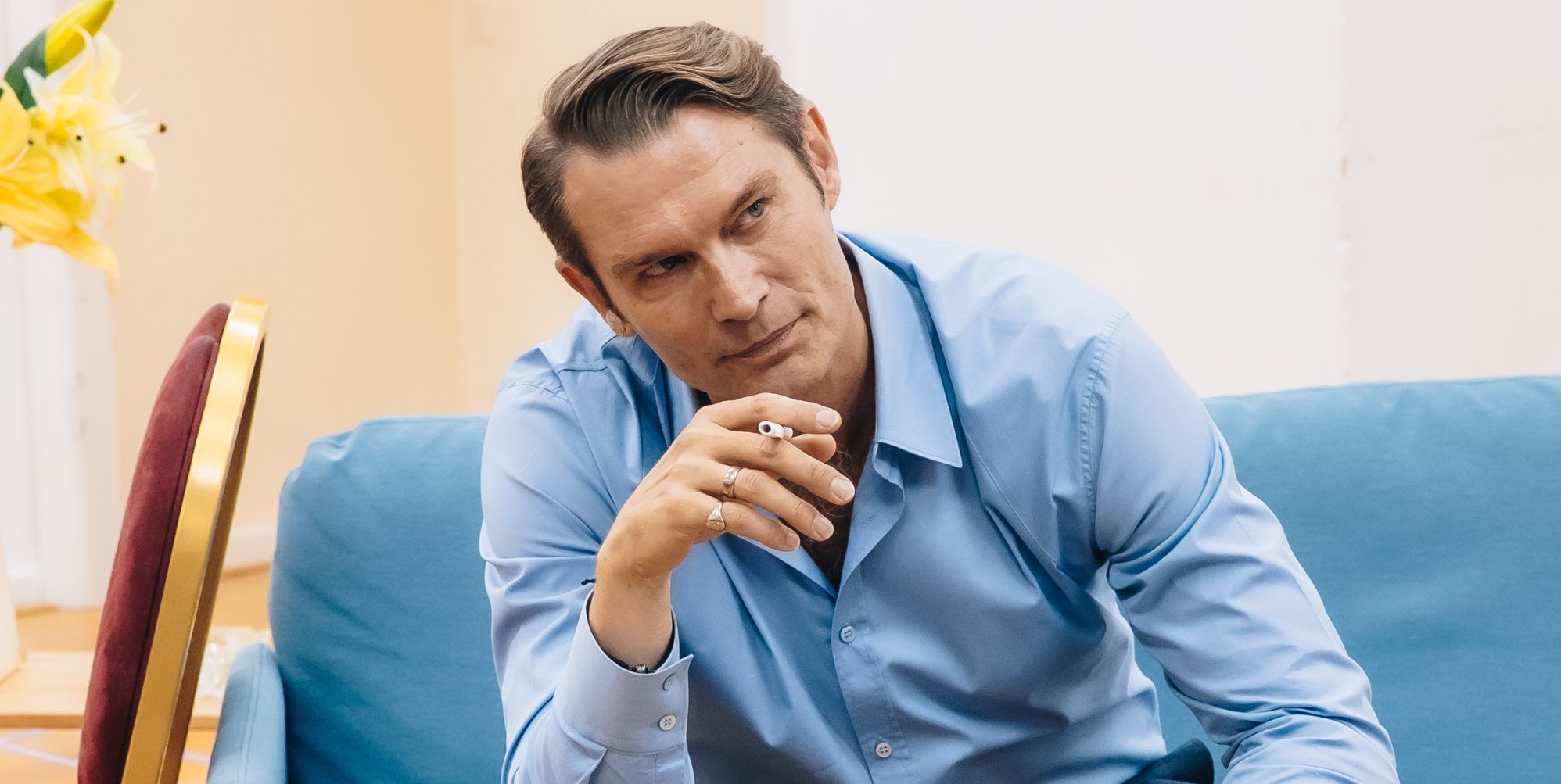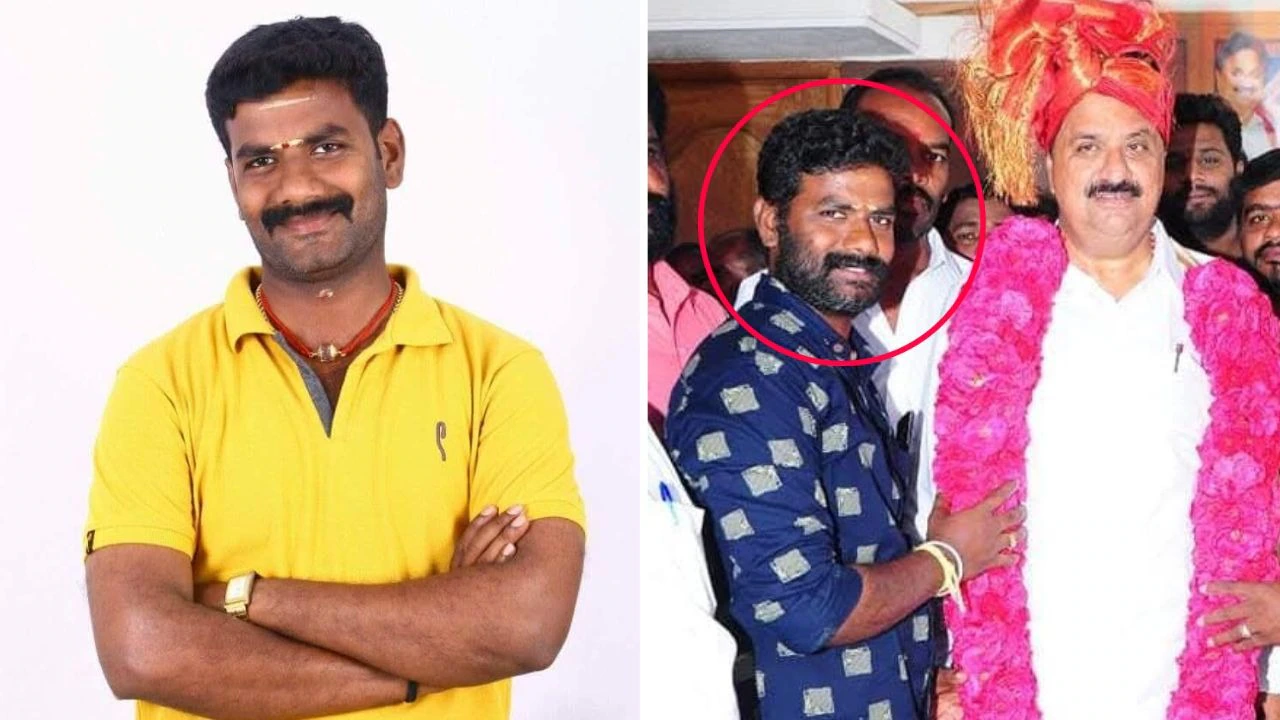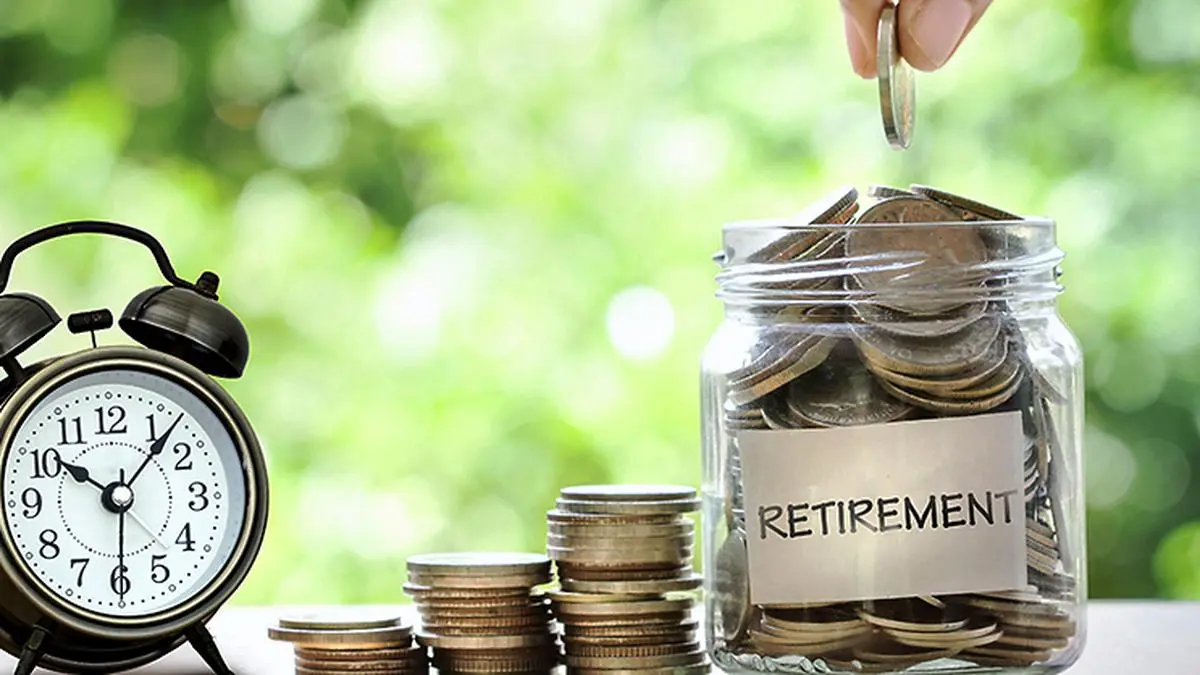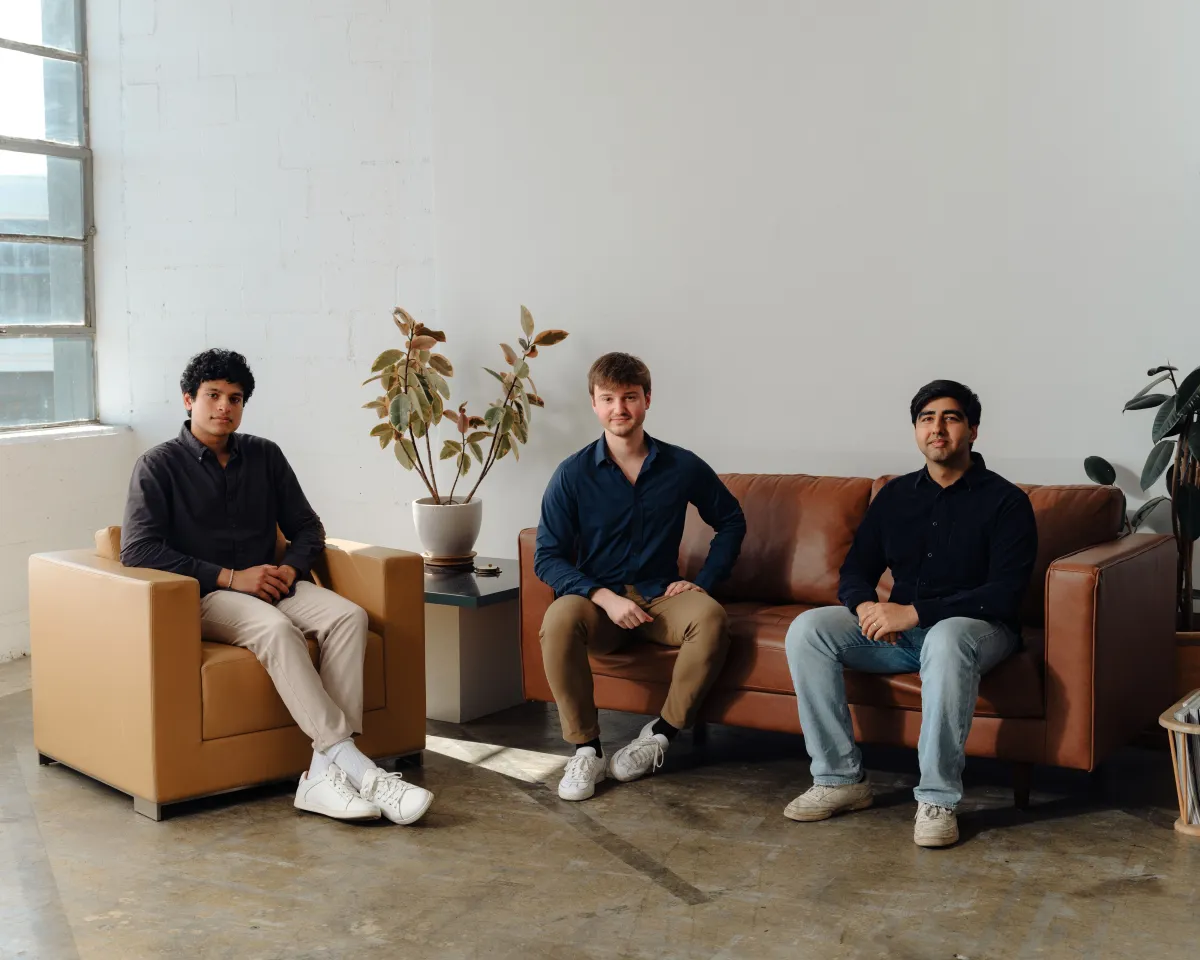By Marcus Wratten
Copyright thepinknews

Last month, John Partridge was confronted by his strangest homophobic incident yet, when a woman in Greenwich Park told him to “suck a rainbow”.
“I pissed myself,” the 54-year-old actor beams. “I know this is meant to be some horrendous slur at me right now, but you know what? If I could find one, I would f***ing suck the life out of it. Show me that rainbow! You gotta laugh.”
Sometimes Partridge, who emblazoned himself on the British consciousness as the buff and permanently tank-topped Christian Clarke in EastEnders, can brush off the flippant homophobia that still festers in the world today. Most of the time though, it makes him despair.
It’s this that drew him to his current role in Michael McKeever’s play The Code, in which he stars as 1930s movie star William ‘Billy’ Haines, a man who was “in today’s speak, the first out [gay] movie star,” explains Partridge.
By the mid-920s, Haines was MGM’s box office darling, en route to becoming one of the shiniest stars of Hollywood’s Golden Age. Today, his story is criminally unknown. In 1933, eight years into his relationship with his partner Jimmie Shields, MGM offered him an ultimatum: enter a Lavender Marriage, or lose his burgeoning stardom. He chose the latter. “He is really an unsung LGBT hero… I knew nothing about him,” Partridge confesses. “I was a little bit ashamed.”
The Code imagines Haines at home in 1950, now an interior designer, hosting a cocktail hour with his friend and bisexual actress Tallulah Bankhead (played by Tony Award nominee Tracie Bennett). In walks Henry Wilson (Nick Blakeley), the real-life, queer Hollywood agent responsible for building the careers of closeted stars Rock Hudson and Tab Hunter, who believes that the closet is the best place for actors striving for success.
Wilson wants his new protégé Chad Manford to keep his homosexuality hidden, too. The four lived experiences are batted about the room like a game of psychological tennis.
“It deals with the toxicity of Hollywood from yesteryear to today in the fact that, you name me one. A-list. Out. Hollywood. Star,” Partridge says, flexing his thesp and pausing after each word. “And by that, I mean somebody who actually leads a motion picture. There aren’t any.”
I begin to offer some. Jonathan Bailey? Partridge balks at the suggestion, one he’s clearly prepared for. “Jonathan Bailey’s not the lead actor in Wicked! He’s number two or number three! You can get to a certain level. Jonathan Bailey has got to a certain level, but he’s not Tom Cruise. He’s not the frontman. That’s what we’re talking about here. You can be the ‘best friend of’. You’re not going to see Jonathan Bailey as James Bond. You’re not!”
I take the point. The last gay man to win the Oscar for Best Actor? Kevin Spacey in 1999 – almost two decades before his much-criticised public coming out statement. “It’s absolute homophobia,” Partridge says waspishly. “There’s no other word for it.”
Most queer 20th century actors didn’t go down the Billy Haines route. Carrie Grant, Ramon Novarro, Anthony Perkins among many others stayed closeted for fear of their careers ending. “There are hundreds of actors that still do it now,” Partridge says.
By the time he himself had become a household name, beamed into millions of living rooms four nights a week between 2008 and 2012 on EastEnders, Partridge was already an established stage presence. He trained in musical theatre in London and toured the UK in Cats as a teenager. He went on to become a reliable West End name, and starred in blue-chip musicals including Grease, Miss Saigon and Rent. Professionally and personally, he was out as a gay man; he’s been with actor Jon Tsouras since the early 2000s.
After signing up for EastEnders though, the first tabloid article written about him highlighted his sexuality. He didn’t necessarily care, but it “casts a dye,” he says. That’s why some actors still feel uncomfortable speaking about their sexuality, he adds, because “if they do, they will be penalised for it”.
Partridge is speaking from the bowels of a rehearsal space in London, a few weeks before The Code premieres. He looks like he’s already dressed for the role in a tan waistcoat, his hair still perfectly coiffed, his face still chiselled in that way that makes you think God has favourites.
By nature of what we’re discussing, our conversation is a little depressing. Yet Partridge is a garrulous, rousing presence, the type to inspire you to sign a bunch of petitions on your lunch break. He talks loudly and fervently and like a man who is used to an audience. He is also wonderfully camp, which he has worn as a badge of honour throughout his career; one of his most recent roles was as drag queen Loco Chanelle in the UK tour of Everybody’s Talking About Jamie.
Some have seen this as a stain rather than a strength. In 2023, he starred as Julius Caesar in Netflix’s critically panned docudrama, Queen Cleopatra. It’s his only venture into the gargantuan world of glossy streaming TV, and I can understand why.
“On the first day of filming, the director came back to me and she said, ‘You know nobody wanted you but me?’ And I was like, ‘Great, I’m just about to go on set.’” The comment was intended as a vote of confidence, but he knew what it meant: others in the production weren’t sold on casting “that poof off EastEnders“. Most of the time, the actor says he stays in his “lane” and doesn’t audition for very “butch” roles. “The point is it wouldn’t matter if I wanted to do [a masculine role] because I wouldn’t be seen for it anyway,” he says.
Partridge is equally forlorn about the state of the world at large. While he could laugh at the bizarre “suck a rainbow” comment, he has been feeling increasingly “unsafe” as a gay man just walking the streets. “I was a gay person in the ‘80s, through [Section] 28, all of that. I never had any consequence as a young gay person,” he reminisces. He mentions Hilary Clinton’s recent comment, urging LGBTQ+ couples in the US to get married in case the Supreme Court’s 2015 Court ruling on same-sex marriage is overturned. We dissect Snoop Dogg’s recent remarks about LGBTQ+ representation in Disney films.
“We’re doing a real good job of alienating ourselves from each other without Snoop Dogg or whomever else throwing in their two penneth,” he says, lamenting LGB people who have turned on the trans community. “It’s so ludicrous to me.”
He likens gay folk with anti-trans views to Henry Wilson’s position in The Code, and how the community can eat itself from the inside out. “What difference does it make what toilet somebody uses? What difference does it make what pronouns people have? At the end of the day whether your pronouns are he/him, they/them, whatever, once you’re gone, it’s going to be was and were.”
Times and tolerance have markedly changed over the past 15 years, he says. His biggest EastEnders story was Christian’s star-crossed romance with closeted Muslim, Syed Masood (Marc Elliott). The plot was “controversial” at the time, but pushback was minimal and it found fans in everyone from burly straight builders to 80-year-old nans.
“There wasn’t some crazy adverse reaction to it. There weren’t hateful letters and stuff like that, which makes you think ‘Oh, maybe there’s a bit of progress.’ That’s what lulls you into this false sense of [security] because people weren’t horrible,” Partridge says. He wonders whether the plot would receive more pushback today, as Britain becomes increasingly embroiled in anti-Muslim, anti-LGBTQ+, and anti-minority narratives.
“Can you imagine! Can you imagine, with immigration [protests] and people standing outside hotels and Rylan!” Partridge bursts, referring to the TV host’s recent inflammatory remarks about immigrants. “That’s the thing that is frightening.”
Still, he is proud of the storyline, and still, he has hope. The Code may highlight industry homophobia today, but it also highlights how we’re all free to make decisions for ourselves, just like Billy Haines did. “We all have a voice. We all have a vote. We all have an opportunity to stand up to injustice where we see it,” he urges. With that, Partridge is back to rehearsals, and I am off to join a rally or scrap with a Hollywood executive.
The Code is on at London’s Southwark Playhouse until 11 October.
Share your thoughts! Let us know in the comments below, and remember to keep the conversation respectful.



